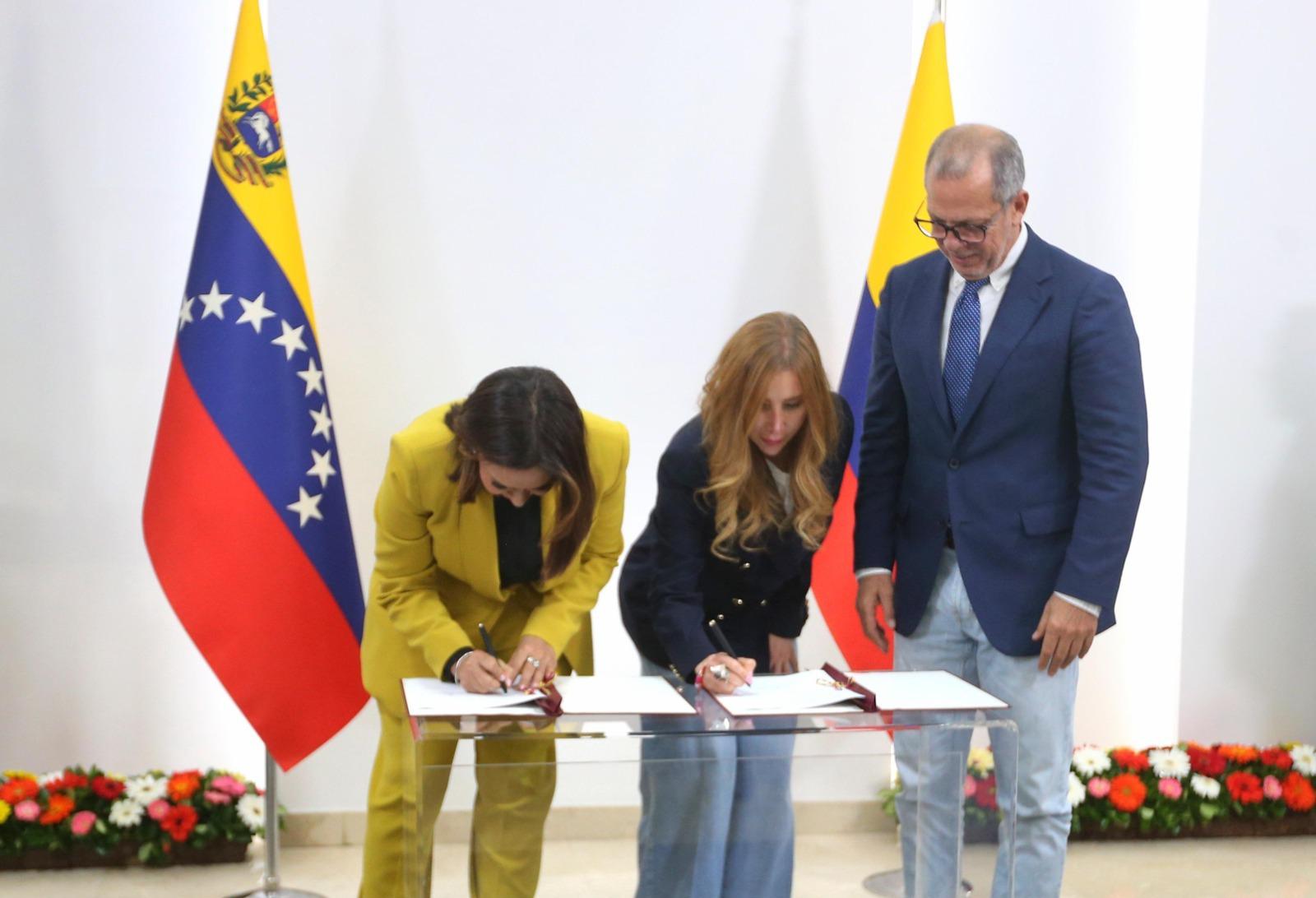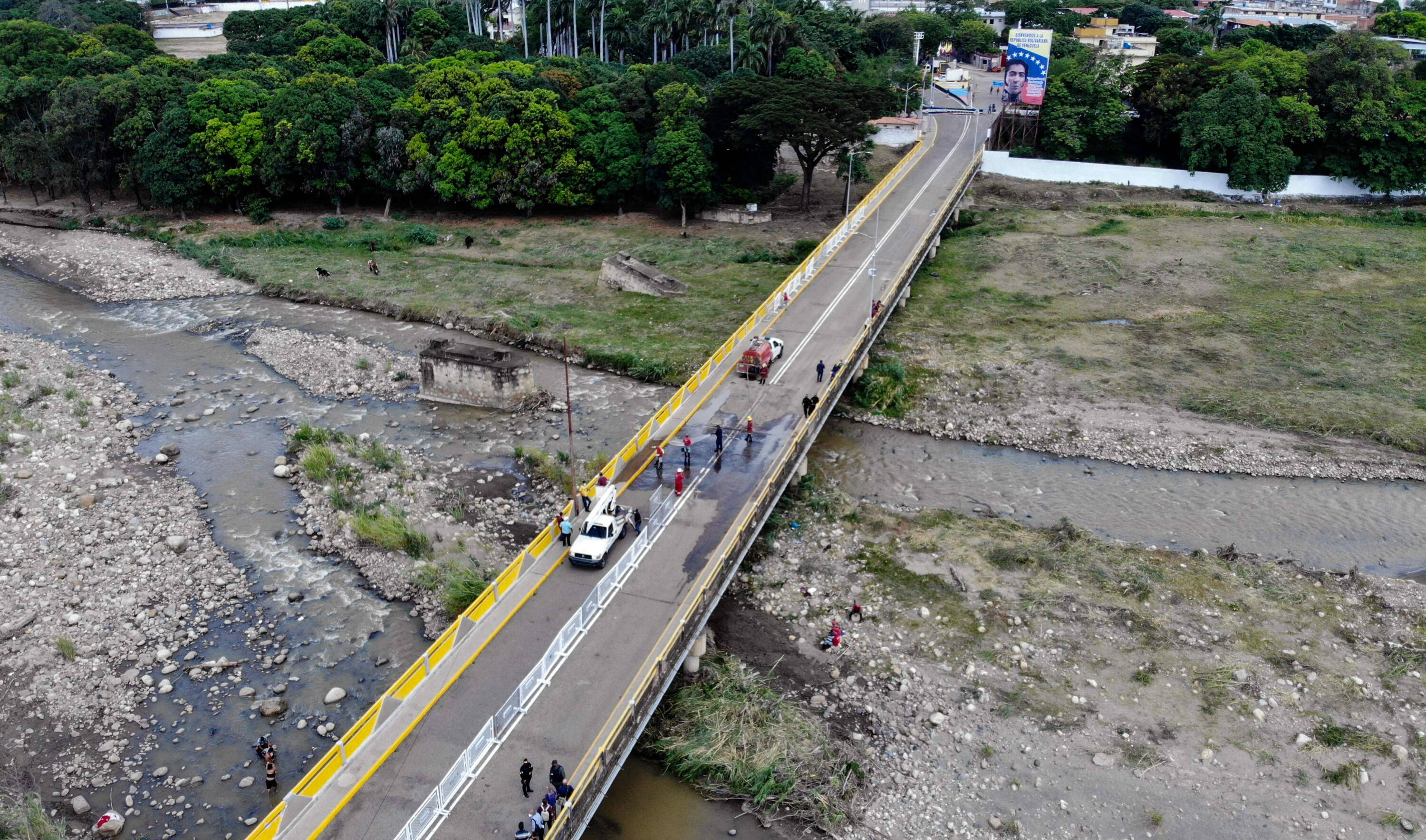More risks than opportunities? Experts' warnings about the creation of the special economic zone between Colombia and Venezuela

A few days ago, President Gustavo Petro's government signed a memorandum of understanding with Venezuela to create a special economic zone that will include Táchira, Zulia, and Norte de Santander, although the specific area has yet to be determined.
This agreement is initially valid for five years and aims to promote cooperation on issues related to trade, tourism, culture, education, and health, in addition to boosting agri-food production projects.
"We intend to advance joint efforts that will allow us, through this special economic zone, to promote productive diversification, generate added value, and foster inclusive and sustainable economic development," stated Diana Marcela Morales, Minister of Commerce, Industry, and Tourism.

Reopening of the Colombian border with Venezuela. Photo: Ministry of Commerce
For the Colombian-Venezuelan Chamber of Commerce, this agreement strengthens the business environment on the border, stimulates investment , and creates real opportunities for binational entrepreneurs.
"This initiative promotes a shared vision of productive development, investment, and sectoral integration in key areas such as industry, energy, tourism, agribusiness, and trade," he added.
This initiative promotes a shared vision of productive development
However, Alberto Schlesinger, an expert on Venezuelan politics and economics, warns that this special economic zone could lead to a "broad and accelerated loss of national sovereignty and territorial control by the state."

Signing of the memorandum of understanding with Venezuela to create a special economic zone. Photo: Ministry of Commerce, Industry, and Tourism
In addition to increasing the presence of illegal groups in Colombian municipalities, he stated, "The reality is that today there is widespread and uncontrolled smuggling of all kinds in the border area, managed by mafia networks that exercise effective sovereignty and control."
The president of the Colombian-American Chamber of Commerce (AmCham Colombia), María Claudia Lacouture, also shares this concern about a possible loss of control over Colombian territory and the risk that "this area could become a space of impunity or a refuge for illegal economies."
"Integration is not achieved through rhetoric, but through institutionality, security, and compliance with the constitutional framework. Without these elements, any binational zone runs the risk of being symbolic or, worse yet, serving as a catalyst for illegal dynamics," he commented.
Will an economic zone between Colombia and Venezuela really be useful? For Alberto Schlesinger, the treaties that have long existed between Colombia and Venezuela are sufficient and cover all tradeable goods and services.
Meanwhile, the president of AmCham Colombia believes that, if well designed, economic integration could offer real opportunities to boost trade and improve border conditions.
Any business expectation requires minimum conditions
However, the signed memorandum "lacks verifiable objectives and clear implementation mechanisms," and without a roadmap detailing its conditions and the regulatory and logistical instruments that would make it viable, there is no clarity about the benefits it would bring to Colombian companies.
"Any business expectation requires minimum conditions: clear rules, legal certainty, transparency, and respect for the rule of law. For now, there is only a political announcement without any technical basis that would allow for a responsible assessment of risks and opportunities," said María Claudia Lacouture.

Colombia's border with Venezuela. Photo: AFP
Additionally, Alberto Schlesinger describes the intention to offer special treatment (tax or otherwise) to attract companies to this special economic zone as a "mind-blowing pipe dream," in a context where the territory is under the control of illegal groups.
“Sharing territory with Nicolás Maduro and his cronies (including drug cartels) would be extremely serious and would take a huge bite out of our fractured and unraveled territorial sovereignty,” he said.
According to the president of AmCham Colombia, the business sector is willing to support these types of cooperation mechanisms only if they are built on the principles of democracy, legality, transparency, and with the effective participation of local governments and the productive sector.
eltiempo





